Filter by
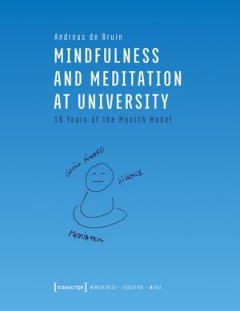
Mindfulness and Meditation at University : 10 Years of the Munich Model
Why should mindfulness and meditation be taught at universities? What impact could the establishment of such programs have on students and on the education system itself? Andreas de Bruin showcases the remarkable results of the first ten years of the Munich Model »Mindfulness and Meditation in a University Context« - a program started in the year 2010 in which 2000 students have already parti…
- Edition
- -
- ISBN/ISSN
- 9783839456965
- Collation
- 216 halaman
- Series Title
- -
- Call Number
- 370 halaman

John Gardner: A Tiny Eulogy
John Gardner’s career was permanently changed by his publication of On Moral Fiction (1978), a controversial and derided assessment of the state of literature as Gardner saw it. By arguing for a return to greater seriousness and moral commitments in literature, Gardner found himself attacked on all sides by critics and writers who found his conservatism suspicious or simply irrelevant. In thi…
- Edition
- -
- ISBN/ISSN
- 9780615734514
- Collation
- -
- Series Title
- -
- Call Number
- -

Rereading Marx in the Age of Digital Capitalism
The 'end of history' has not taken place. Ideological and economic crisis and the status quo of neoliberal capitalism since 2008 demand a renewed engagement with Marx. But if we are to effectively resist capitalism we must truly understand Marx: Marxism today must theorise how communication technologies, media representation and digitalisation have come to define contemporary capitalism. There …
- Edition
- -
- ISBN/ISSN
- 9781786805188
- Collation
- -
- Series Title
- -
- Call Number
- -
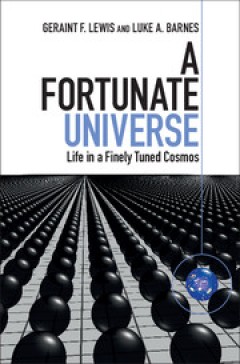
A Fortunate Universe Life in a Finely Tuned Cosmos
Over the last forty years, scientists have uncovered evidence that if the Universe had been forged with even slightly different properties, life as we know it - and life as we can imagine it - would be impossible. Join us on a journey through how we understand the Universe, from its most basic particles and forces, to planets, stars and galaxies, and back through cosmic history to the birth of …
- Edition
- -
- ISBN/ISSN
- 9781316661413
- Collation
- -
- Series Title
- -
- Call Number
- -
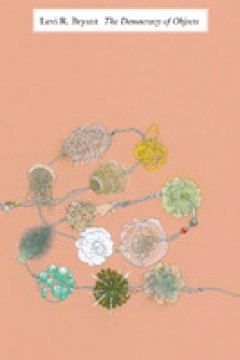
The Democracy of Objects
In The Democracy of Objects Bryant proposes that we break with the epistemological tradition and once again initiate the project of ontology as first philosophy. Bryant develops a realist ontology, called -onticology-, which argues that being is composed entirely of objects, properties, and relations. Bryant proposes that objects are dynamic systems that relate to the world under conditions of …
- Edition
- -
- ISBN/ISSN
- 9781607852049
- Collation
- -
- Series Title
- -
- Call Number
- -
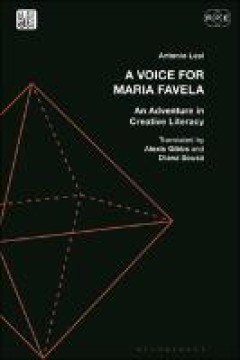
A Voice for Maria Favela
This open access book, originally published in Portuguese in 1988 and now available in English for the first time, describes the Brazilian educator, Antonio Leal's, experiences teaching so-called “unteachable” children in Rio de Janeiro’s favelas. A Voice for Maria Favela tells the story of how Leal considers what the children bring to the class, gradually engaging them in developing a na…
- Edition
- -
- ISBN/ISSN
- 9781350247598
- Collation
- -
- Series Title
- -
- Call Number
- -
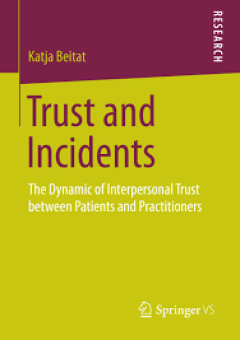
Trust and Incidents The Dynamic of Interpersonal Trust between Patients and …
Taking an interdisciplinary approach to conceptualise interpersonal trust between patients and medical practitioners, Katja Beitat introduces a unique model to describe the dynamics of trust building and deterioration with particular relevance to incidents in health care. Empirical findings from studies in Australia and Germany, the two systems focused on in this book, broadly support and expan…
- Edition
- -
- ISBN/ISSN
- 978-3-658-09670-0
- Collation
- -
- Series Title
- -
- Call Number
- -
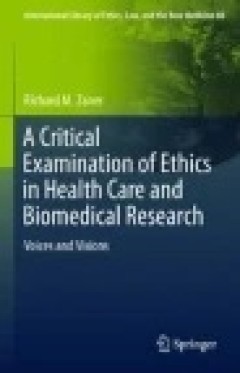
A Critical Examination of Ethics in Health Care and Biomedical Research: Voic…
This book is a critical examination of certain basic issues and themes crucial to understanding how ethics currently interfaces with health care and biomedical research. Beginning with an overview of the field, it proceeds through a delineation of such key notions as trust and uncertainty, dialogue involving talk and listening, the vulnerability of the patient against the asymmetric power of th…
- Edition
- Ed. 1
- ISBN/ISSN
- 978-3-319-18332-9
- Collation
- -
- Series Title
- International Library of Ethics, Law, and the New Medicine
- Call Number
- 301 ZAN c
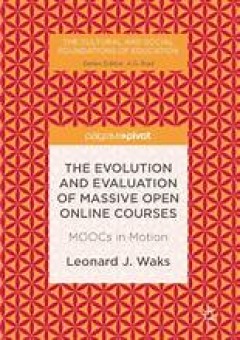
The Evolution and Evaluation of Massive Open Online Courses
This book offers a re-assessment of the educational and occupational value of MOOCs based on developments since 2013. When MOOCs appeared--amidst great fanfare in 2012, leaders proclaimed an educational “revolution.” By 2013, however, dramatic failures, negative research findings, and sharp critiques ended the MOOC hype. This book examines both MOOCs and prior distance learning innovations,…
- Edition
- 1
- ISBN/ISSN
- 978-1-349-85204-8
- Collation
- XVII, 136
- Series Title
- The Cultural and Social Foundations of Education
- Call Number
- -
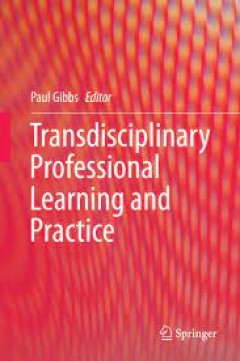
Transdisciplinary Professional Learning and Practice
This book presents thinking about and through transdisciplinary and professional development as an educative process. Rather than focusing on the delineation of the approaches offered, an analysis of these contributions points to commonality in those problems that benefit from a transdisciplinary perspective. The core elements of transdisciplinarity can lead to what might be called metanoia …
- Edition
- -
- ISBN/ISSN
- 978-3-319-11590-0
- Collation
- -
- Series Title
- -
- Call Number
- -
 Computer Science, Information & General Works
Computer Science, Information & General Works  Philosophy & Psychology
Philosophy & Psychology  Religion
Religion  Social Sciences
Social Sciences  Language
Language  Pure Science
Pure Science  Applied Sciences
Applied Sciences  Art & Recreation
Art & Recreation  Literature
Literature  History & Geography
History & Geography